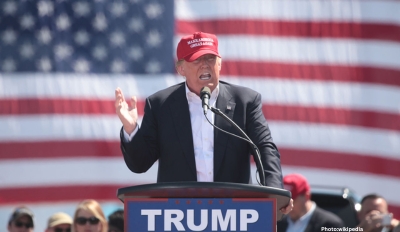In one of the most significant wealth declines in over ten years, the 500 richest individuals across the globe saw a combined drop of $208 billion in their fortunes. This massive hit followed the announcement by U.S. President Donald Trump of a sweeping set of reciprocal tariffs aimed at major international trade partners.
Mark Zuckerberg, the founder of Facebook and its parent company Meta, experienced the most severe personal loss among the global elite. His net worth plummeted by $17.9 billion, amounting to a staggering 9% decrease. This marked the single largest personal loss of the day and symbolized the broader economic tremors felt throughout the billionaire class.
The losses marked the fourth-largest one-day drop in the 13-year history of the Bloomberg Billionaires Index. The only comparable financial hit occurred during the peak of the Covid-19 pandemic. This time, however, it was triggered by a political move rather than a global health crisis. Following the announcement of the tariffs, American billionaires bore the heaviest losses, reflecting the financial community’s reaction to the potential consequences of the escalating trade tensions.
Amazon founder Jeff Bezos, another major casualty, saw his net worth decline by $15.9 billion. This sharp fall came after Amazon’s stock price slid by 9%, making it the steepest daily drop the company had experienced since April 2022. Investors responded swiftly and negatively to the trade war rhetoric, fearing that it could damage global supply chains and consumer confidence.
Tesla CEO Elon Musk, known for his close ties with Trump and his role as a government advisor, was not immune to the fallout. His wealth decreased by $11 billion as Tesla shares slipped by 5.5%. Despite his relationship with the administration, market forces reacted independently, pulling down share prices in anticipation of future economic instability.
Several other prominent American billionaires also suffered significant losses. Michael Dell, the founder of Dell Technologies, saw his fortune decline by $9.53 billion. Oracle co-founder Larry Ellison’s net worth dropped by $8.1 billion. Nvidia CEO Jensen Huang experienced a loss of $7.36 billion, while Google co-founders Larry Page and Sergey Brin lost $4.79 billion and $4.46 billion, respectively. Thomas Peterffy, the founder of Interactive Brokers, also took a hit of $4.06 billion.
Outside of the United States, only a few non-American billionaires were substantially affected. Among them, French luxury tycoon Bernard Arnault stood out. As the head of LVMH, the world’s largest luxury goods company, Arnault’s wealth declined by $6 billion. The drop followed a slide in LVMH’s stock value in Paris trading. With the European Union now facing a newly imposed 20% flat tariff on all exports to the U.S., luxury goods companies like LVMH were particularly vulnerable. The group owns some of the most iconic brands in the world, including Christian Dior, Bulgari, and Loro Piana.
These tariffs could significantly affect European exports, especially in sectors like alcohol and luxury products, where France is a dominant player. Arnault’s losses highlight the broader international consequences of Trump’s protectionist economic policies. With shares of luxury brands falling sharply, markets are clearly bracing for reduced demand and disrupted trade flows between the EU and the U.S.
Trump’s latest round of tariff hikes specifically targeted nations he has frequently accused of exploiting the U.S. through unfair trade practices. The president increased tariffs on imports from several key regions and trading partners. China was hit hardest, with an additional 34% tariff, pushing the total up to a punishing 54%. This move is likely to further strain the already tense trade relationship between the U.S. and China.
The European Union, as noted, now faces a uniform 20% tariff on its exports to the United States. This development comes after years of diplomatic friction over trade imbalances and accusations of protectionism from both sides. Japan was not spared either, receiving a 24% increase in tariffs. These hikes represent a significant escalation in trade tensions, with potentially far-reaching implications for the global economy.
The fallout from these policy decisions was swift and unforgiving, particularly for billionaires heavily invested in companies vulnerable to international trade disruptions. The financial markets responded with a sharp correction, wiping billions off the valuations of some of the world’s biggest corporations in a matter of hours.
Although these wealth losses are largely paper-based and may be reversed if markets stabilize, they reflect growing uncertainty among investors and business leaders alike. The impact on stock prices suggests that the market views the new tariffs not just as a temporary irritant, but as a structural threat to global commerce.
Billionaires who have enjoyed years of booming valuations and tech-driven growth suddenly found themselves in the crosshairs of a volatile geopolitical landscape. With Trump’s aggressive trade strategy in full swing, companies dependent on global supply chains or international consumer bases now face heightened risks.
The economic implications extend beyond personal net worth. These massive financial hits can influence corporate strategies, hiring plans, and long-term investments. As a result, ordinary workers and consumers might also feel the ripple effects in the months ahead.
Though Mark Zuckerberg experienced the largest personal loss of the day, he was far from alone. The domino effect rippled through various industries—from tech and retail to luxury goods and automotive—showing just how interconnected today’s global economy is. “This is the kind of event that sends shockwaves through not just stock portfolios, but the strategic direction of multinational firms,” said one market analyst.
In short, President Trump’s decision to impose reciprocal tariffs has ignited not only a diplomatic firestorm but also a financial one, erasing over $200 billion in wealth among the world’s richest individuals in a single day. Whether this proves to be a temporary market overreaction or the beginning of a more sustained downturn remains to be seen. What’s clear, however, is that billionaire fortunes are not immune to political maneuvers, and the global economy remains deeply sensitive to the winds of trade policy.


